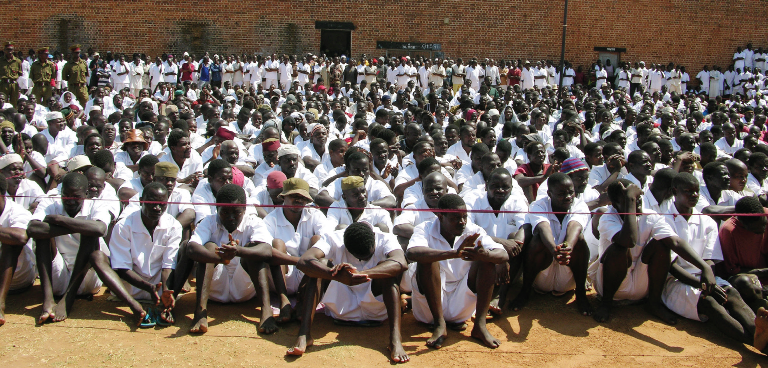Prisoners run out of food, essentials
Most prisons in the country have run out of food due to their inability to access funds through the Integrated Financial Management Information System (Ifmis), causing inmates to bed on empty stomachs, Nation on Sunday has learnt.
Malawi Inspectorate of Prisons (MIP) confirmed on Thursday that the country’s prisons are unable to access their funds through Ifmis.

As a result, prisoners are also lacking water, electricity and are unable to access treatment when sick.
Centre for Human Rights Education, Advice and Assistance executive director Victor Mhango said his office received complaints from prisoners about their plight, and he described the situation as dire and an infringement of the prisoners’ rights.
He said inability to access food, water, electricity and basic commodities was widespread in prisons.
Mhango said the country’s Constitution grants prisoners the right to life and to be treated in a dignified manner.
The activist said his organisation brought the issues to the attention of prison authorities, but they were not getting positive feedback.
MIP chairperson Ken Manda, when his team visited Blantyre Prison, popularly known as Chichiri, said most prisons last accessed their funds in July 2021, a development which made MPS fail to pay its suppliers.
Manda, a High Court of Malawi judge, said for instance, Zomba Central Prison alone owes Southern Region Water Board about K231 million in water bills, a situation which makes the prison face frequent water challenges.
Ministry of Home Affairs Principal Secretary Kennedy Nkhoma said prison authorities were better placed to comment on the matter.
He, however, admitted that the Ifmis challenges exist and are not unique to MPS.
Mhango said something appears terribly wrong with Ifmis and the sooner they rectify the problem the better.
He said: “Prisoners appear to be a neglected group. Is it because they are prisoners?
“Deaths are always recorded in our prisons and we do not want to conclude that some of these deaths are a result of food and drug shortages.”
MIP concluded its three-week tour of all the prison facilities in Malawi, and according to some sources on this team, food shortages and other essentials such as water and electricity are problems that require urgent attention.
Manda said Ifmis creating enormous challenges for MPS: “They [MPS] cannot repair their vehicles. Most prisons use electric pots, most of which have broken down and cannot be repaired. So, they have to use firewood, which is also a challenge.”
On vocational skills for prisoners, Manda stressed the need to introduce a special fund to train inmates in tailoring, bricklaying and commercial agriculture to enable them to be self-sustaining.
MPS records show that the country’s prison population fluctuates between 11 000 and 13 000.
The Northern Region has prisons in Chitipa, Karonga, Mzuzu, Nkhata Bay, Mzimba and Rumphi while in the Central Region, they include Kasungu, Ntchisi, Lilongwe, Dedza and Nkhotakota.
Eastern Region has prisons in Ntcheu, Mangochi, Domasi, Zomba Central Prison, Mikuyu Prison and Mpyupyu.
In the South, there is Mwanza, Luwani, Chikwawa, Mulanje, Thyolo, Bvumbwe, Blantyre, Bangula, Nsanje and Makande.





